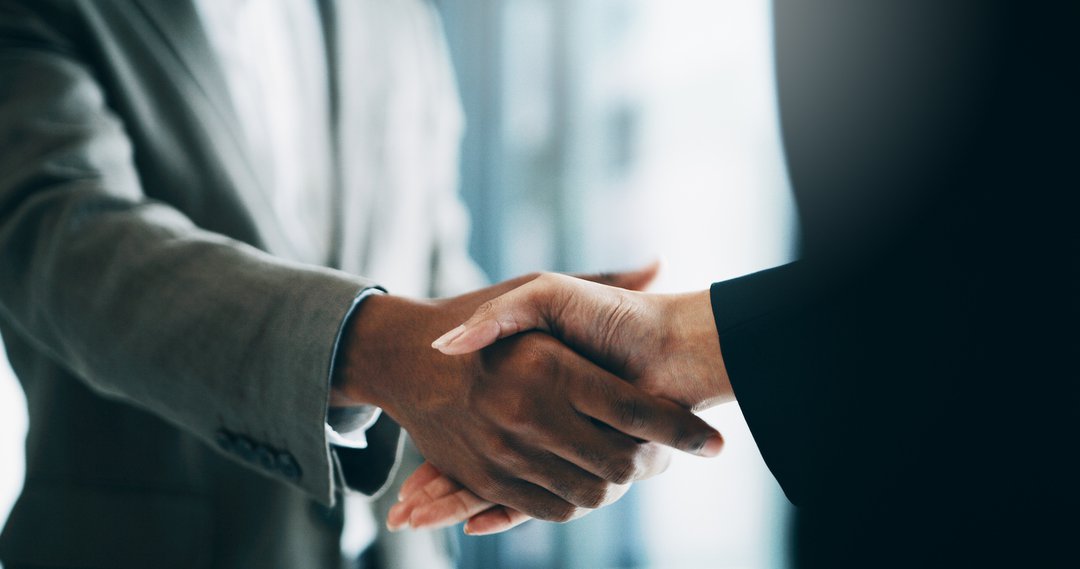
Before a recent group business dinner for startup founders in New York City, Anand Sanwal told his wife he wouldn’t shake people’s hands.
But then at the dinner, people outstretched their hands, Sanwal said, and “like a sheep” he shook.

iStock-1215758851.jpg
- The handshake is back in tech to the delight of some and the disappointment of many.
- There is low risk that COVID-19 can spread through shaking hands, medical experts say.
- Still, some people are put off by handshakes for sanitary or cultural reasons.
The handshake is back in startup and venture capital circles after it took a hiatus during the pandemic as a safety precaution. But as more people get vaccinated against COVID-19, it’s creeping back into people’s routines, insiders say.
The handshake’s return is welcomed by some startup founders and funders, and is a hygienic nightmare for others, including Sanwal, cofounder and CEO of data provider CB Insights. He was hopeful that the pandemic might have killed off the handshake, but says he sees folks shaking hands again like it’s 2019.
“I was never a fan of handshakes, pre-COVID even,” Sanwal said. “I’ve been in enough bathrooms to see people not wash their hands.” For this reason, he prefers a no-touch greeting, like a bow or hands together for “namaste.”
Last year, the tech industry was one of the early responders to the threat of COVID-19, with companies canceling events and sending workers home to slow the spread. In February 2020, the high-powered venture-capital firm Andreessen Horowitz hung a sign in its offices that read “Due to the Corona Virus, No Handshakes Please.”
For a time, the tech industry was mocked for taking such precautions. And the sign on Andreessen Horowitz’s offices bceame the subject of a social media feud, after Recode had an article asking if Silicon Valley was being paranoid.
Now, with more than half of adult Americans fully vaccinated, observers say the handshake has returned.
“It’s instinct. You just do it,” Jenny Fielding, managing director of Techstars New York, said.
She recently hosted an event for 150 people in tech at the Frying Pan in New York. The restaurant required that people were tested or showed proof of vaccination, Fielding said, which made guests more comfortable being close together with people they didn’t know.
“I cannot tell you how many people shook my hand. It was super weird,” Fielding said.
Weird, yes. Unsafe? Not particularly, medical experts told Insider.
The disease spreads from person to person through respiratory droplets, said Dr. Monica Gandhi, an infectious diseases doctor and professor of medicine at University of California, San Francisco. There are a few reports of cases thought to come from surface transmission, but the risk of infection from touch is very low, experts like Gandhi say.
“I see zero issues with people shaking hands,” she said.
Just to be safe, people should avoid touching their mouth or eyes after shaking hands, Lee Riley, professor and chair of the Division of Infectious Disease and Vaccinology at University of California, Berkeley, said. He still recommends washing hands with soap and water or using a hand sanitizer after a business meeting, even though the risk is low.
Mark Goldberg, a partner at Index Ventures, is ready for the handshake’s comeback. He had his first handshake in more than a year last month, he told Insider by email.
“The other person went for it, I instinctively followed suit, and there it was — normalcy returned! Like riding a bike, it came right back,” Goldberg said. “I’m all for it and can’t wait for the awkward fist and elbow bumps to subside.”
Others wish the handshake stayed banished.
Jack Altman, a startup founder and a young dad, has only recently started hanging out with fully vaccinated friends. He takes outdoor walks for business meetings, and still works from home most days out of the week, even though he’s fully vaccinated. His enterprise software startup Lattice has reopened its offices for people who want to go in.
Recently, “somebody gave me a handshake, and I didn’t like it,” Altman said.
Altman says he’s “not a germophobe, really,” but he has other reasons for his handshake-hesitancy. The handshake has always been a show of physical strength, and it can even influence a person’s first impression. This puts some people, especially women, who are already seen as less competent or qualified in the workforce, at a disadvantage.
“Why do we need to be showing our forearm strength?” Altman said.
Comments are closed.
